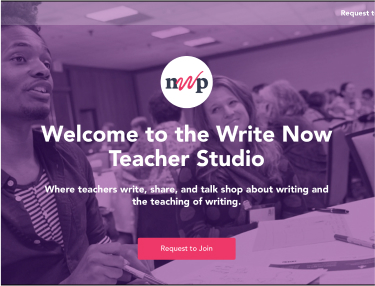Discover Content
Results for “Elementary”
A Visit with the Authors of Wondrous Words: Reimagining Writers and Writing in the Elementary Classroom
A conversation about reclaiming teacher creativity and professional autonomy in elementary writing classrooms.
Establishing, Maintaining, and Sustaining the Elementary Writing Center
Professors Jennifer Sanders and Rebecca L. Damron outline steps for establishing a student-led peer tutoring writing center, important questions to make sure your center fits your local context, and tips for sustaining a center through teacher fatigue and district-level change.
Today’s Reasons Why We Need Students to Write for Authentic Audiences
Why students’ voices, interests, stories, and experiences should reach real readers and some ways to support this.
An After-School Video Club for Elementary Students
Chuck Jurich explains how an elementary after school video club of 20 students creates an average of a dozen short films every year through peer instruction. Here he lists the stages of production, shows an example of an AV-style student script, and links to the software used.
Lessons in Linked Learning and Maker Education from the Wonder Workshop
Teachers at Grass Valley Elementary engage young people in exploring their interests and found that Project Based Learning with a focus on Maker Education increased student engagement and empowerment. Included are examples of student work, links to Maker kits, prompts, and templates.
Lights, Camera, Social Action!
Kate McKay shares student work from her fourth grade class as they complete a unit on discrimination and describes how the students’performance of the work completely unended the audience's biased expectations of their school. Shown here are examples of student storyboarding as well as links…
Sequence of Inquiry for Technology Use at the Primary Level
Jason Shiroff shares the Sequence of Inquiry Project that he uses when introducing students to wikis and other new technology.
Video and Writing in the Elementary Grades
Chuck Jurich focuses on the writing that happens in video production as he describes how his elementary grade students become filmmakers in their Video Club. He includes an example of a student-produced script along with a description of the production process and how that process reflects…
Write Now Teacher Studio

Where teachers write, share, and talk shop about writing and the teaching of writing
Hosted by the National Writing Project, the Write Now Teacher Studio is an open, online community of educators for educators. It’s a place to write together, examine our teaching, create and refine curricula, and work toward ever more effective and equitable practices to create confident, creative, and critical thinkers and writers in our classrooms and courses.

